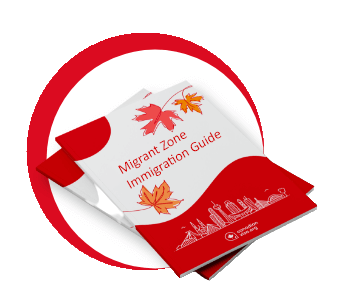
- The latest data from Immigration, Refugees and Citizenship Canada (IRCC) shows that spousal sponsorship immigration in Canada nearly doubled in January 2023 compared to the same month in 2022, with 10,065 new permanent residents being welcomed, up 90.1%, and up 126.9% compared to the 4,435 new permanent residents in January 2020.
- New Brunswick is set to experience a significant surge in immigration rates, projected to increase by 67% in 2023, following an increase of 1,084 spaces in the New Brunswick Provincial Nominee Program (NBPNP) and a boost of 1,116 allocations under the Atlantic Immigration Program (AIP), with further increases expected in the coming years.
Canada's Spousal Sponsorship Shows Nearly Double the Intake in Early 2023
According to the most recent statistics from Immigration, Refugees and Citizenship Canada (IRCC), spousal sponsorship immigration to Canada almost doubled in January 2023 in comparison to the same period in 2022, as 10,065 new permanent residents were welcomed, marking a 90.1% increase, and a 126.9% surge when compared to the 4,435 new permanent residents welcomed in January 2020.
Initially, there was a decline in the number of individuals entering Canada under spousal sponsorships in January during the first year of the pandemic. However, in 2021, the figure gradually increased by 43.5% to reach 5,295, while in 2020, spousal sponsorships fell by over 44.2% to 36,120 new permanent residents. Prior to the COVID-19 pandemic, spousal sponsorships enabled 64,775 new permanent residents, accounting for 19% of the total 341,175, to immigrate to Canada in 2019. By 2021, spousal sponsorships had almost returned to pre-pandemic levels, surging by over 78.4% to 64,440 before tapering off somewhat in 2022. However, in January 2023, Canada has seen this number double compared to January 2022.
The Canadian government has established a maximum limit of 84,000 new permanent residents for sponsorship programs that include spouses, partners, and children in its Immigration Levels Plan 2023 – 2025. For this year, the objective for this group of immigrants is to welcome 78,000 new permanent residents.
While the COVID-19 pandemic initially caused a drop in immigration levels to Canada, the country has since rebounded and welcomed record levels of immigrants in recent years. Canada's commitment to welcoming immigrants, including through spousal sponsorships, remains strong as it continues to navigate the pandemic.
Discover how to move to Canada as a couple.
New Brunswick Immigration Set to Surge 67% in 2023
New Brunswick is set to experience a 67% rise in immigration in 2023 due to an increase in the New Brunswick Provincial Nominee Program (PNP) spaces and an additional 1,116 allocations under the Atlantic Immigration Program (AIP) provided by the Canadian government. The NBPNP will have 1,084 more spaces, increasing the total for 2023 to 5,500. Immigration officials in New Brunswick predict further increases in allocations in 2024 and 2025.
The Canada-New Brunswick Immigration Agreement allows the province to nominate qualified candidates for permanent residence and to recruit highly-skilled immigrants for accelerated processing by Immigration, Refugees and Citizenship Canada.
“The Canada-New Brunswick Immigration Agreement is important for addressing on-going immigration issues such as slow population growth and labour market demands,” said Immigration Minister Sean Fraser.
Provincial Immigration Minister Arlene Dun says the assigning resources will aid in sustaining the economic and demographic expansion of the province, as it is facing the challenge of an aging population. “Immigrants help build stronger, diverse and vibrant communities which is why we are thrilled with this increase,” she said, adding that, “With immigration being a shared jurisdiction, a strong partnership with the federal government is critical to our continued success on this file.”
The province has set a target of 32% of provincial nominations in 2023 being awarded to French-speaking immigration candidates.
Fraser added, “It also demonstrates our commitment to supporting francophone immigration outside Quebec by increasing the target for admissions of French-speaking immigrants to the province and ensuring that they have the opportunities and resources they need to settle and contribute to the vibrant francophone communities in the province.”
For more Canadian immigration news, be sure to follow us on our social media platforms below.
Have what it takes to move to Canada? Use our CRS Calculator to find out your scores.



